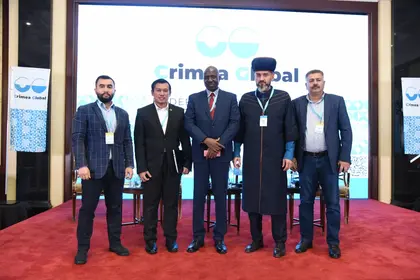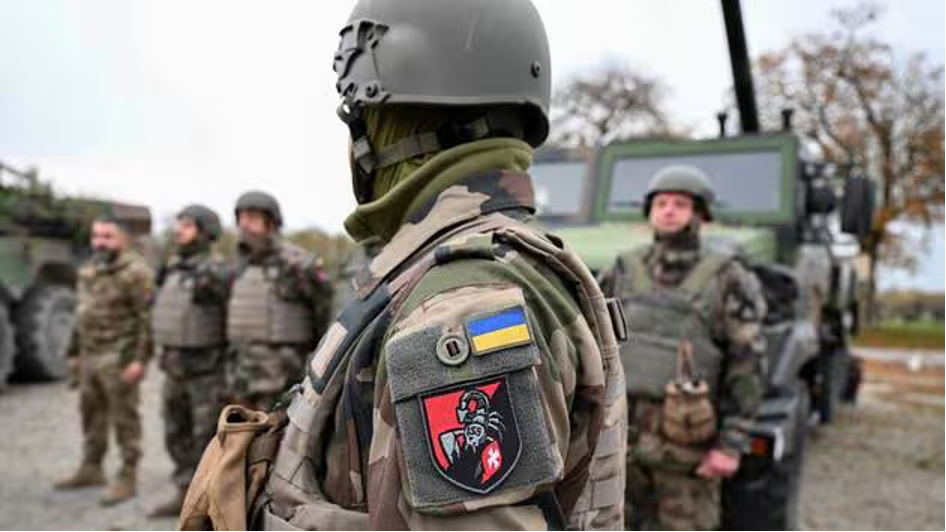Muslim representatives at the international “Crimea Global: Understanding Ukraine Through the South” conference, in the forum’s penultimate panel, discussed the ways the global community of Muslims could support the liberation of Crimea and the future of Ukraine, and how Ukraine can serve as a model for those countries to secure their own progress.
The Crimea Platform, an international consultation and coordination format initiated by Ukraine, hosted the conference event in Kyiv on Oct 14-16 with over 70 speakers and panelists from over 30 nations, concentrating on how formerly and currently colonized countries can work together with Ukraine to promote independence and sovereignty. The panel of Muslim groups provided some useful insight into the interaction that would mutually benefit Crimea and other predominantly Muslim-population regions of the globe.
JOIN US ON TELEGRAM
Follow our coverage of the war on the @Kyivpost_official.
Russian aggression against Muslims was a topic of particular interest given the historical and current persecution of the Muslim population in Crimea by Moscow, discussed by a panel with Muslim community leaders from Ukraine/Crimea, Syria, Malaysia and Guinea.
Attendees of Crimea Global: Understanding Ukraine Through the South. Photo: Oleksandr Avramenko, Kyiv Post.
How Muslims are affected by Russian aggression in Crimea and the potential for global solidarity
This topic was discussed by Muslim leaders from Ukraine (Crimean and non-Crimean), Malaysia, Guinea, and Syria, who warned that Moscow is repeating the oppression of Crimean Muslims that it had employed before as the Russian Empire and the Soviet Union.

Ukraine-NATO: Common Interests and Challenges on Path to Membership
Panel members said that in Ukraine Muslims are treated with not just tolerance but hospitality, as are other diverse members of ethnic and religious groups. One panelist noted that there is no radicalism against the 130-plus nationalities and ethnicities in the country and scoffed at the notion of neo-Nazis running Ukraine. They said that nearly every city and town has a mosque, prayer house, or Muslim community center.
Diallo Issa Saddio, President of the African Council in Ukraine, came from Guinea in 1986, married a Ukrainian wife and has been living here since then. He said African Muslims came to Ukraine after the full-scale invasion and assisted volunteer battalions in rebuilding efforts in Bucha and Irpin and providing general humanitarian medical support. He said he was personally thanked for his service in Ukraine by the leader of the Ukrainian Orthodox Church.
In contrast, Diallo said Putin promised food to Africa, which never appeared, and then destroyed grain in Odesa. He said that Putin does export authoritarianism to Africa by supporting dictators.
Mohammad Fazril Bin Mohd Saleh, Secretary General of the Muslim Youth Movement of Malaysia, said that Ukraine, given the Crimean situation, has an opportunity to show the world how to gather support from Muslims globally. He highlighted Russian violence against Muslims in Chechnya, Syria, along with Crimea. He also compared the destruction in Mariupol to the destruction Putin and Syrian President Bashar Al Assad caused in Aleppo, including the deliberate targeting of Syrian civilians.
The panel also discussed the oppression of Muslims within the Russian Federation, including the destruction of mosques and the Kremlin conscripting Muslims to go fight other Muslims in Ukraine in violation of the tenets of Islam.
The group concluded that Ukraine has an opportunity to form global solidarity with the vast population of Muslims around the world, especially given the plight of Crimean Tatar Muslims.
Crimea Global: Understanding Ukraine Through the South speakers, panelists and participants. Photo: Oleksandr Avramenko, Kyiv Post.
The Crimea Platform organizational mission statement:
“The Platform aims to increase the effectiveness of the international response to the ongoing occupation of Crimea and mounting security threats, respond to growing security threats, increase international pressure on the Kremlin, prevent further human rights violations and protect victims of the occupation regime, and achieve the main goal – de-occupation of Crimea and its peaceful return to Ukraine.”
You can also highlight the text and press Ctrl + Enter









